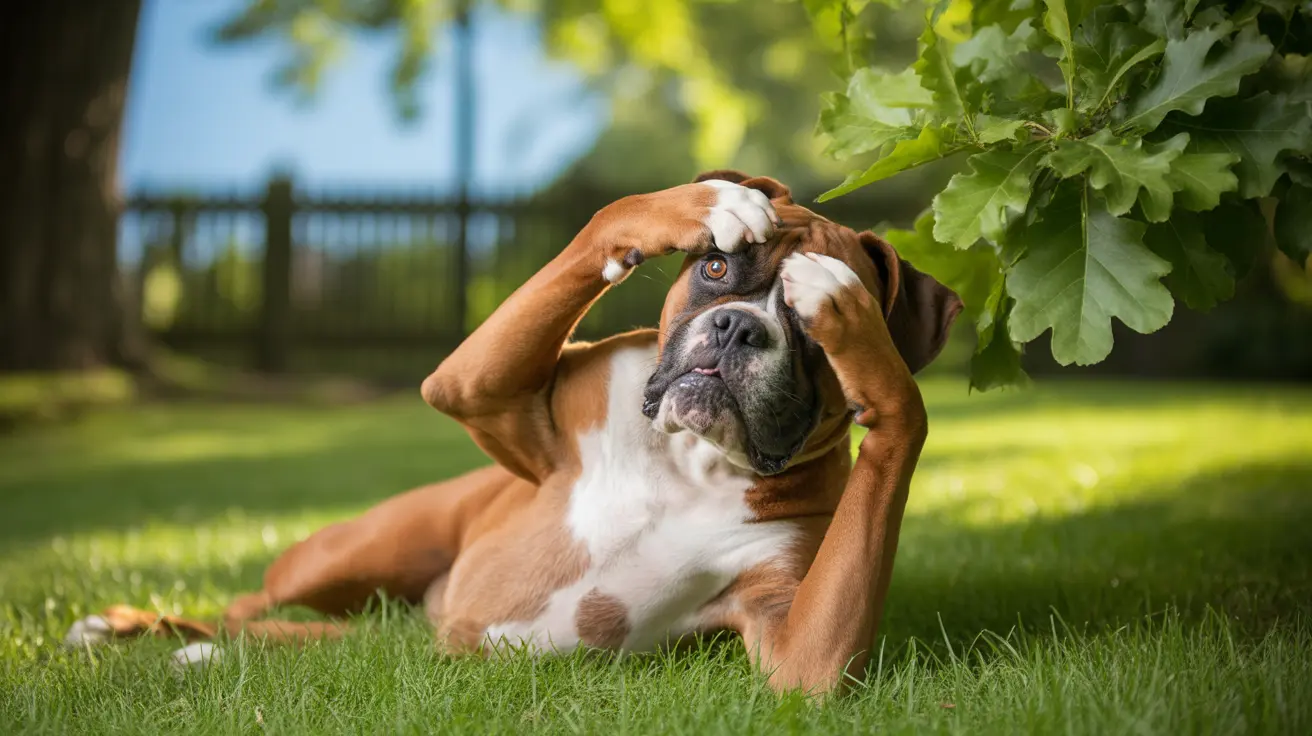Have you ever wondered why your furry friend occasionally covers their eyes with their paws? This endearing behavior, while cute and often photographed, can actually signal various physical and emotional states in our canine companions. Let's explore the fascinating reasons behind this common dog behavior and when it might require attention.
From simple grooming habits to complex emotional expressions, dogs use their paws to communicate and cope with their environment in numerous ways. Understanding these signals can help pet owners better respond to their dogs' needs and ensure their well-being.
Physical Reasons for Face Covering Behavior
One of the most straightforward explanations for dogs covering their eyes with their paws is physical discomfort. Dogs may be attempting to relieve an itch, remove debris, or address irritation around their eyes or face. This can be caused by:
- Allergies or environmental irritants
- Foreign objects in or around the eye
- Normal grooming behavior
- Eye discharge or tears
If your dog frequently paws at their face, it's essential to monitor the behavior's frequency and check for any signs of redness, swelling, or discharge that might indicate a medical issue.
Emotional Expression and Communication
Dogs often cover their eyes with their paws as a form of emotional expression. This behavior can indicate:
Stress and Anxiety
When feeling overwhelmed or anxious, dogs might cover their faces as a self-soothing mechanism. This is particularly common during thunderstorms, fireworks, or other stressful situations.
Submission and Social Signals
Face covering can be a submissive gesture, especially when meeting new dogs or people. It's their way of showing they're not a threat and avoiding direct eye contact, which can be considered confrontational in dog body language.
Attention-Seeking and Learned Behavior
Many dogs learn that covering their eyes with their paws gets a positive reaction from their humans. This adorable gesture often results in attention, treats, or affection, reinforcing the behavior. Some dogs may develop this into a clever strategy for:
- Getting their owner's attention
- Requesting playtime or treats
- Expressing their needs or wants
When to Be Concerned
While face covering is usually harmless, certain situations warrant veterinary attention:
- Excessive or compulsive pawing
- Signs of eye irritation or infection
- Changes in behavior or mood
- Accompanying symptoms like lethargy or loss of appetite
Frequently Asked Questions
Why does my dog cover their eyes with their paws—could it be due to itching or irritation?
Yes, itching or irritation is a common reason for dogs to cover their eyes with their paws. This could be due to allergies, foreign objects, or eye infections. If the behavior persists, consult your veterinarian.
Can a dog covering its face with paws be a sign of anxiety or fear?
Absolutely. Dogs often cover their faces when feeling anxious or fearful, especially during loud noises or unfamiliar situations. It's a self-soothing behavior that helps them cope with stress.
Is my dog showing submission or shyness when it hides its face with its paws?
Yes, face covering can be a submissive gesture in dogs. It's their way of communicating non-aggression and avoiding confrontation, particularly in social situations with other dogs or humans.
How can I tell if my dog's pawing at its face indicates a medical problem?
Watch for signs like excessive pawing, redness, swelling, discharge, or changes in behavior. If these symptoms appear or the behavior becomes frequent, seek veterinary care.
Why does my dog cover its face with paws to get attention or show affection?
Dogs often learn that this behavior elicits positive responses from their owners. It can become a learned method of seeking attention, affection, or rewards, especially if the behavior has been reinforced in the past.
Conclusion
Dogs covering their eyes with their paws can mean many things, from simple physical needs to complex emotional expressions. By understanding these signals, you can better respond to your dog's needs and ensure their comfort and well-being. If you're ever concerned about this behavior, don't hesitate to consult with your veterinarian for professional guidance.






